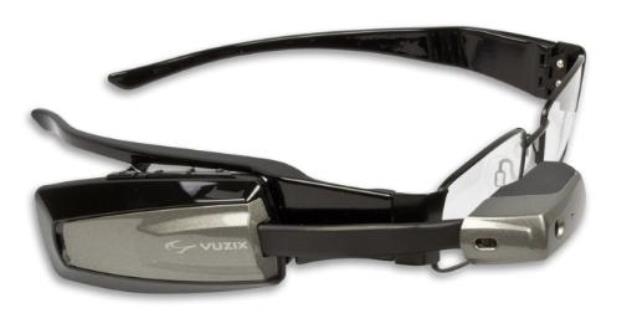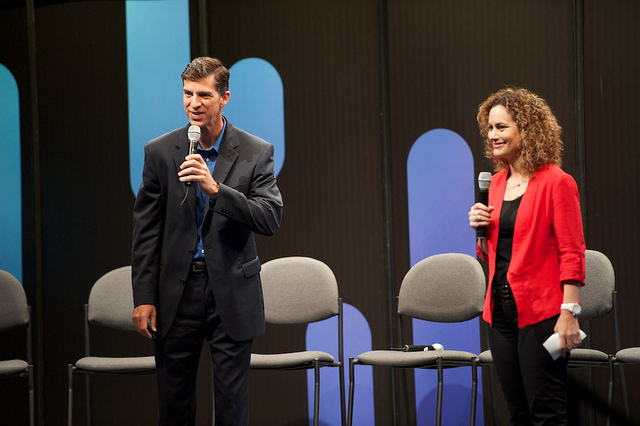Chinese computer company Lenovo Group Ltd. showed off a new smart glasses device to bring the spotlight on a new partner program it has developed to push the development Internet of Things gear.
The smart glasses presented by Lenovo was developed by Vuzix Corp. a Rochester, New York-based company that specializes in computer display devices and video eyewear. The wearable computing device, named Vuzix 100 Smart Glasses, looks like a beefier version of the Google Glass.

The M100 Smart Glasses
The device will be exclusively marketed by Lenovo. The agreement between Lenovo calls for Vuzix serving as the exclusive third-party provider of the smart glasses for commercial and industrial markets in China but also allows for expansion into other geographical markets and products. Vuzix worked closely with Lenovo and their development teams to create the Smart Glasses product, also called M100. The product is specifically tailored for the Chinese marketplace. Its features include: Chinese language voice recognition, mapping and numerous other domestic cloud based services.
The Vuzix Smart Glasses 100 was developed under the partner program established by Lenovo called NBD. In Chinese, NBD stands for New Bench. The program offers funding, hardware research and manufacturing and logistical support to Lenovo partners and is focus on developing and marketing connected device for the growing Internet of things market.
NBD is currently focused on the Chinese market, but it could be used to support products for international distribution.
A quick check of the NBD Web site showed that among the products developed through the program are an intelligent air purifier and a smart router.
Lenovo want to be among the first companies to get into the burgeoning IoT market which is some analysts predict will be worth as much as $6.2 trillion annually by 2025. In Canada, a Telus/IDC study estimates that over the next two years, IoT spending in the country will jump from $5.6 million in 2013 to about $21 billion by 2018.
The Industrial Economics and Knowledge Center (IEK) under the government sponsored Industrial Technology Research Institute predicted that the wearable device market will reach US$20.6 billion in 2018, and in China.
The big challenge for Lenovo is that with its focus on servers and computers it needs to partner with and invest in other companies working on IoT technologies.
“Lenovo is always seeking new and innovative products that merge and integrate technology into products that offer our customers a high degree of functionality and convenience,” said Yuli Bai, vice-president and general manager for new business development at Lenovo. “The advent of wearable technologies and specifically Smart Glasses, exceeds that goal and provides a new level of mobility in computing and communications systems.”
He said Vuzix was an obvious choice for a strategic partnership because the company is and established and leading supplier of smart glasses technology. In exchange, Vuzix is getting Lenovo’s muscle and an entry into the lucrative Chinese market.
“China is a significant milestone for us and for the wearable industry,” according to Paul Travers, CEO of Vuzix. “Lenovo is world renowned for its high quality products and exceptional engineering, making them the most ideal partner with which to bring our M100 Smart Glasses to China.”
“…we hope the M100 is just the first in a line of future products the companies may introduce together incorporating Vuzix’ video eyewear technology for sale in China and perhaps elsewhere,” he added.






